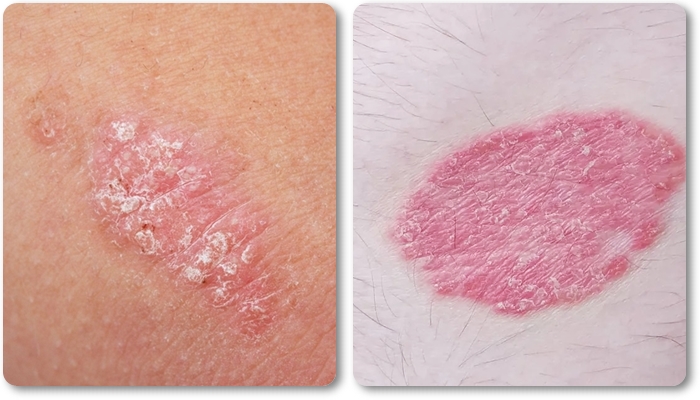
Symptoms and Treatment of Psoriasis, What You Need to Know About Psoriasis
Psoriasis is an autoimmune skin disease that causes skin cells to multiply several times faster than normal. So what are the symptoms and treatment of psoriasis? Types and symptoms of psoriasis.
Psoriasis is an autoimmune skin disease that causes skin cells to multiply several times faster than normal. During psoriasis, bumpy red patches covered with white scales begin to appear on the skin.
These scaly patches can be observed anywhere on the skin. However, it is most commonly seen on the scalp, elbows, knees, and back. Psoriasis is not contagious, meaning it cannot be passed from person to person. It can be seen more frequently in family members with genetic predisposition.
Psoriasis can be seen in both children and adults. Psoriasis can cover a large part of the body, red patches may heal over time and recur throughout a person's life.
What Causes Psoriasis?
Although the exact cause of psoriasis is not yet known, it is believed that this disease occurs as a result of a combination of many factors. In its normal rhythm, skin cells are replaced every 10 to 30 days. In psoriasis, new cells are formed every 3-4 days. Old cells, which are usually replaced with new ones, accumulate and cause flaking on the skin. A malfunction in the immune system causes unnecessary inflammation of the skin, which leads to the rapid proliferation of new skin cells.
As psoriasis can be seen in individuals in the same family, it can sometimes skip generations. For example; a grandparent and grandchild may be affected, but the child's mother may not.

All types of psoriasis have some common triggers. Among these situations that can trigger psoriasis again; skin cuts, scrapes or surgeries, emotional stress, strep infections, lithium for bipolar disorder, blood pressure medication such as antimalarial drugs, beta blockers, hydroxychloroquine or antimalarial drugs, excessive alcohol use and smoking, especially in young men.
The disease is more common especially in winter and cold days. Being in warm, sunny and humid environments can reduce the likelihood of contracting the disease.
Symptoms and Types of Psoriasis
1- The symptoms of psoriasis vary according to the type of the person. The most common symptom of plaque psoriasis, the most common type of psoriasis, is plaques covered with silvery scales in the form of red spots. These plaques can be itchy and painful. The plaques can sometimes crack and bleed. In more severe cases, the plaques may grow and coalesce to cover very large areas of the skin. There may be discoloration and pitting in the finger and toenails. In addition, nails may crumble or separate from the nail bed. Scaling or crusting may occur on the scalp.
2- Pustular psoriasis, which is usually seen in adults, is pustular psoriasis in the form of small pustules, which are blisters filled with non-inflammatory white or yellow colored fluid, causing a red and scaly appearance on the palms and soles. skin.

3- It is droplet type or guttate psoriasis that usually starts in childhood or young adulthood. This species usually causes small, red spots on the trunk and limbs. Triggers of gout psoriasis include respiratory infections, strep throat infection, tonsillitis, stress, skin injury, and use of antimalarial or beta-blocker medication.
4- It is another type of inverse psoriasis, which is seen as bright red lesions that occur in places where the skin is folded, such as in the armpits, groin, behind the ears and under the breasts.
5- In erythrodermic psoriasis, it is seen that there is a burning redness on the skin and the scales can be shed in layers. Erythrodermic psoriasis can be triggered by severe sunburn, infection, use of certain medications, and stopping some psoriasis treatments. It needs to be treated immediately, as it can lead to serious illness and serious problems.
Additionally, people with psoriasis may experience a type of arthritis called rheumatoid arthritis or psoriatic arthritis. In this case, pain and swelling occur in the joints.
Psoriasis Treatment
Psoriasis is a chronic disease, so there is no cure. However, current treatment methods greatly reduce symptoms, even in the most severe cases.
Common treatments for psoriasis include steroid creams, moisturizers for dry skin, and prescription creams or ointments containing coal tar, vitamin D, which are found in lotions, creams, foams, shampoos, and especially bath solutions that are a common treatment for psoriasis. scalp. with retinoid creams.
Different treatment methods are also used in more severe and severe psoriasis cases. Among them, ultraviolet light is given to the skin to slow down the growth of skin cells.
Methotrexate-containing drugs, which are used only in severe cases, are another method as they can cause bone marrow, liver and lung problems.







